Iran's Guards Seize Unknown Tanker In Persian Gulf Region
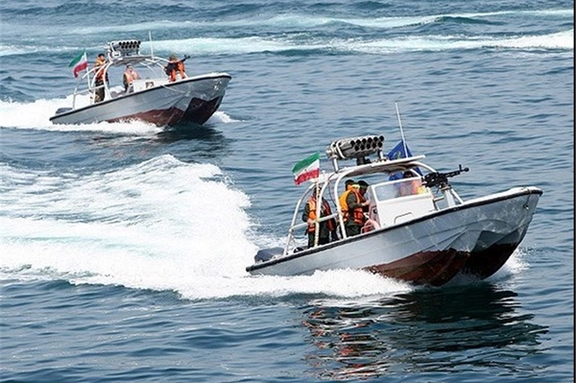
Iran’s Revolutionary Guard has seized an oil tanker “for smuggling diesel” in the Persian Gulf region, days before nuclear talks are set to resume in Vienna.

Iran’s Revolutionary Guard has seized an oil tanker “for smuggling diesel” in the Persian Gulf region, days before nuclear talks are set to resume in Vienna.
An official of the Islamic Revolution Guard Corps (IRGC) did not provide the name or country of origin of the tanker but said it was carrying “150,000 liters of smuggled diesel” fuel. This is a small cargo on the international scale of oil tankers and could be a local vessel.
Ahmad Hajian, a naval commander said Saturday that the ship was seized in Iranian waters but did not provide details about the nationality of the 11-member crew and the tanker’s ownership.
Iran has seized large and small vessels in the past claiming they were engaged in illegal activities. Some of these seizures have led to diplomatic wrangling such as the seizure of a South Korean vessel earlier this year or a Vietnamese tanker in October.
Iran itself has been shipping illicit oil to neighboring countries and to Asia during international sanctions (2011-2015) and current US sanctions imposed in 2018.

President Ebrahim Raisi's "inaction" and "indecision" have frustrated Iran's conservatives and hardliners in parliament who supported him just weeks ago.
Mostafa Mirsalim, a long-time conservative politician, and former presidential candidate has said that the Raisi administration is unable to meet the people's expectations. Referring to frequent protests to economic hardships outside the Majles, Mirsalim said that people have every right to be unhappy about Raisi's performance.
Mirsalim also said that the government's inaction in solving economic problems cannot last for too long. He warned that "There are groups who might take advantage of the situation and make it even worse."
Moderate news website Rouydad24, which carried the interview with Mirsalim warned in a report by Mohammad Auyati that although most protests in Iran were political in nature until a decade ago, nearly all protests since have been motivated by declining prosperity. However, while the website attributed most economic problems to the impact of US sanctions, Mirsalim and other establishment politicians prefer not to mention the sanctions.
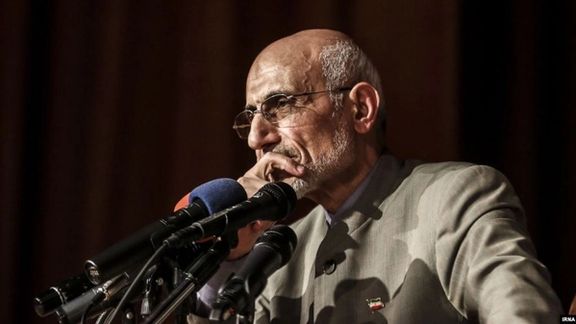
The reason is that if sanctions are highlighted, questions immediately arise about Iran’s nuclear program and foreign policy. Already many commentators have been openly saying that without improvement of relations with the United States Iran’s economy cannot come out of its current crisis.
Meanwhile, Ahmad Bighash, another hardline lawmaker, said that the members of Raisi's economic team are not competent enough to tackle the country's ongoing problems. Referring to systematic corruption in Iran, Bighash pointed out that "Most of those who should address the problem of corruption in Iran are themselves involved in corruption in one way or another or their children are implicated in corruption-related cases. That explains why we have not been successful in dealing with corruption."
On Thursday, hardline academic Mohammad Sadeq Koushki said that "Raisi has not done anything to solve the people's problems," and warned that "this is likely to affect the public’s attitude toward his administration." Koushki said that the Iranian government has lost most of its political capital among Iranians during the past eight years under President Hassan Rouhani and the new government must try to rebuild confidence in the political system.
Koushki added that if people’s trust is not regained, the first thing that will happen is that voters will not welcome any election in the future. "Then all of us are likely to be drowned as we are all in the same boat," he said.
Last week, another member of parliament, Gholamreza Noori, also warned that criticisms of the Raisi administration are likely to intensify as the country's economic crisis continues. He said that the protests in 2018 and 2019 should have been an alarm for the country's officials about the implications of economic crisis, but officials appear to have lost their way and some of them are even implicated in financial corruption cases. Noori also warned Raisi that during the past three months more lawmakers have turned against him.
Not only the number of critics has been on the rise, but it appears that their rhetoric about the Raisi administration is getting increasingly intense. Moineddin Saeedi, representing Chabahr, in the underprivileged province of Sistan and Baluchestan said on Thursday: "The people have many expectations of lawmakers and the Majles is not likely to forgive the administration's errors."
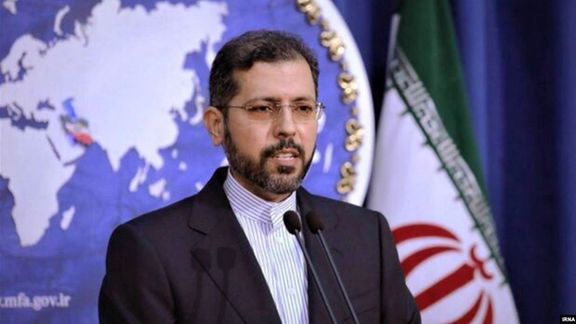
Iran’s foreign minister Saturday condemned the British government’s decision on Friday to ban the Palestinian Hamas militant group under UK's Terrorism Act.
Hossein Amir-Abdollahian in a tweet said, “We condemn the UK’s decision to declare the popular movement of HAMAS a terrorist organization. Rights of Palestinians cannot be trampled on by distorting facts.”
The ban on Hamas brings United Kingdom’s stance on the ruling force in Gaza in line with the United States and the European Union.
Britain's interior minister Priti Patel on Friday said, "Hamas has significant terrorist capability, including access to extensive and sophisticated weaponry, as well as terrorist training facilities."
Iran has been the main military and financial supporter of Palestinian militant groups in Gaza, suspected of transferring missile and other military technology that has been used in attacks against Israel.
Iranian government-controlled media also condemned the UK decision voicing support for Hamas.
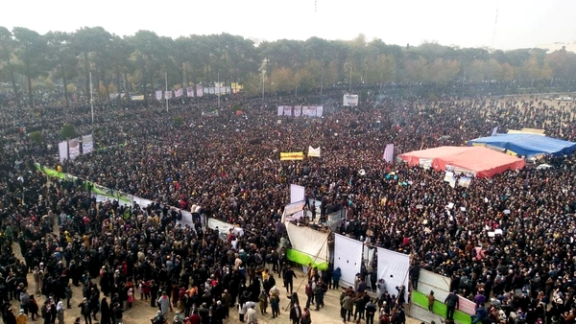
As night fell in Esfahan where large crowds protested Friday, Internet connection in the city center were cut and riot police trucks appeared on the streets.
Thousands of Esfahan residents Friday gathered on the dry bed of Zayandeh Roud river in the city center to support farmers who have been protesting for more than ten days demanding their water rights.
The crowd chanted slogans demanding their river flow again and booed when someone with loudspeaker mentioned Supreme Leader Ali Khamenei’s name.
A video received by Iran International shows riot police special trucks driving down city streets, possibly to position forces where the protest took place Friday. Due to Internet disruption, it is not clear how many people have remained there, although farmers have been camping in the middle of the riverbed for days.
The government in Iran often cuts the Internet during protests so few images could be posted by citizens on social media. It is also a way to reduce the ability of people to communicate and congregate.
Surprisingly, state television showed the protests and government-controlled print media reported on the demonstration, portraying it as “non-political” and legitimate.
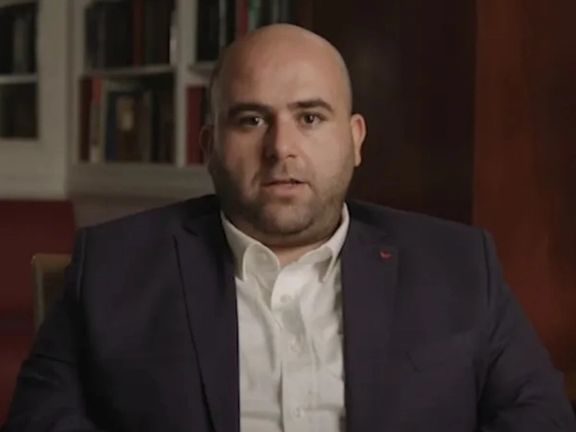
Telling the truth is a crime in Iran, says journalist Mohammad Mosaed, winner of the 2020 press freedom award of the US-based Committee to Protect Journalists (CPJ).
Mosaed received his award Thursday at a ceremony in New York City after one year's delay now that he is safely out of Iran and living in the US, which CPJ says has played a “powerful role…historically in supporting press freedom around the world.”
In a video-taped speech, Mosaed identified "just a few examples of the countless sufferings of Iranians” in missiles shooting down a Ukrainian passenger plane in 2020; the killing of hundreds of protesters in 2019; economic crisis and corruption; and Supreme Leader Ali Khamenei ruling against the import of US- and British-made vaccines.
"The crucial point about each of these catastrophes is that we were never properly made aware of their dimensions," Mosaed said. "Speaking the truth is dangerous in my country because the government fears not only the truth itself but also the audacity behind telling the truth and this has turned speaking the truth into a crime in my country."
Mosaed was unable to receive his award last year as he had fled to Turkey to seek asylum.He was detained by Turkish authorities in January and faced the possibility of extradition to Iran.
"At that time he was in danger and could not speak to us openly," Yeganeh Rezaian (Salehi), an Iranian journalist who has worked for Bloomberg and the Abu-Dhabi owned National newspaper. Rezaian was arrested along with her American-Iranian journalist husband Jason Rezaian in 2014 and spent months in Evin prison, Tehran.
"Being summoned to serve more than four years in prison for the crime of exposing financial corruption, Mohammad fled Iran for neighboring Turkey,” she told ICJ. “There he faced the prospect of being sent back. Thanks to CPJ and others, Mohammad is safe.”
In his speech Mosaed criticized the Iranian government for "increasingly cracking down on domestic and foreign journalists, by expelling, exiling, persecution of their families, and widespread propaganda."
Mosaed was arrested in 2019 after posts on Twitter about an internet shutdown. “Knock Even! Hello Free World!" he tweeted in English, adding that he had used 42 different proxies to find a way to post. "Millions of Iranians don't have the internet. Can you hear us?”
He was then released and subsequently detained after he had criticized the government over management of the Covid pandemic. In September 2020 Mosaed was sentenced by a Revolutionary Court to four years and nine months in prison on security and propaganda charges, and banned from journalism and using communications devices for two years.

Large protests to lack of water by farmers in the central Iranian city of Esfahan, backed by the city’s residents, continued Friday for the second week running.
Thousands of people gathered on the dry bed of the iconic Zayandeh Roud river and on the 400-year-old bridges linking the two parts of Esfahan to demand action by the government. Friday’s protest was one of the largest demonstrations in the city in recent years, coming on the anniversary of the November 2019 bloody protests, which carries the risk of unrest spreading to other cities.
Government-controlled media surprisingly published photos of the protests but tried to say that the event is not a "political protest", and reported that Vice-President Mohammad Mokhber will visit the city on Friday and deliver a speech.
Zayandeh Roud – which starts from the Zagros Mountains, whirls through Esfahan and disappears in wetlands east of the city – has been completely dry most of the year for two decades. Esfahani farmers who have been intermittently protesting since 2017, have camped in the city for nearly two weeks as their livelihood has been destroyed by the dry river.
Although a long-running drought has brought many regions in Iran and in the Middle East to a point of crisis, matters have gotten much worse in Iran where people blame government mismanagement, harmful dam building and politically motivated diversion of rivers have devastated agriculture and drinking water sources.
Iranians who also have to cope with a serious economic crisis and 50-percent inflation rate see government mismanagement as the main reason for all kinds of issues.
Protesters on Friday continued chanting slogans, as they have been doing all along. They chanted "Flowing Zayandeh Roud Is Our Indisputable Right," a play on the slogan "Nuclear Energy Is Our Indisputable Right," often chanted at state-sanctioned rallies. "Give Back Our Zayandeh Roud, Give Back Esfahan Its Breath.”
There has also been land subsidence in the city and at the city airport due to water scarcity. Photos posted to social media show cracks in the ground around the airport, and hollows and cracks in and around Esfahan’s historical buildings and monuments.
This has brought the issue more forcefully to Esfahan’s urban residents who have been upset over the dry river. Every time the authorities allow a little bit of water to flow into the river, people congregate along its banks and celebrate.
In June, water protests erupted in the oil-rich Khuzestan province that ended with the forceful intervention of police and the Revolutionary Guard. More than ten people were killed and hundreds detained.